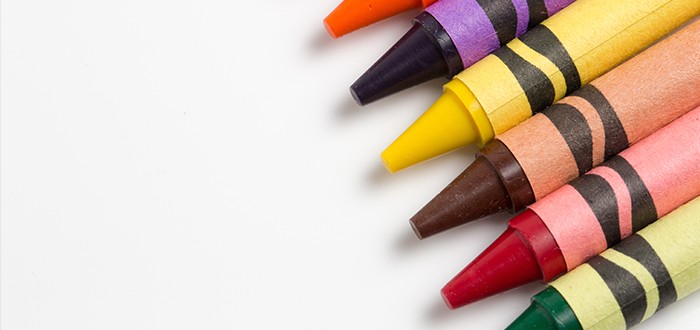Better check to see which brand of crayons your grandkids are using when they color. Those crayons might contain asbestos. If so, then your grandkids are at risk of developing mesothelioma when they grow up.
Time Magazine in early July reported that a consumer protection group recently tested crayons sold at a pair of national discount store chains and found the crayons contained mesothelioma-causing asbestos.
Also, Time reported that this same group tested 21 toy crime-scene fingerprint kits and discovered two of them also contained asbestos.
The tested crayons were purchased at Dollar Tree and Party City stores outside San Francisco during a two-month period that began this past February.
A total of 28 boxes of crayons were purchased. These were then shipped to a North Carolina lab for analysis, Time said. The lab reported that four of the boxes contained asbestos-laced crayons.
The asbestos-containing crayons were manufactured in China. The boxes bore beloved children’s characters such as Mickey Mouse and the Teenage Mutant Ninja Turtles.
“It is unclear whether the companies whose names or trademarked characters appear on the packages are responsible for, or had any role in, the manufacturing of the products or whether they merely licensed the use of their trademarks,” the consumer protection group stated.
Airborne Asbestos the First Step to Mesothelioma
The lab that tested the crayons also tested the fingerprint kits. The 21 EduScience Deluxe Forensics Lab Kit units were purchased through Amazon.com and at Toys “R” Us.
The asbestos in the kits was measured at a concentration of one percent. While that might not sound like much, the group cautioned that a one percent asbestos concentration is considered high.
The group said the kits’ labeling offered no warning about the asbestos, which was contained in a powder meant to be sprinkled over objects in order to reveal the presence of fingerprints.
The group said the kit instructions directed the user to apply the powder and then blow any excess away from the dusted fingerprint.
Blowing the asbestos-laced dust as directed would propel asbestos particles into the air where they might be inhaled or swallowed by the user or anyone else in proximity, the group said.
The inhaled or ingested particles would then become trapped inside the child for decades and might eventually produce mesothelioma.
Time said the federal Consumer Product Safety Commission was notified of the group’s lab findings and has since launched an investigation.
Senators Sound Off About Toy Asbestos Danger
The same day the Time Magazine article appeared, two U.S. Senators urged retailers to initiate a voluntary recall of all products deemed toxic, not just those containing asbestos.
Sen. Edward Markey (D-MA) and Sen. Dick Durbin (D-IL) also pledged to work with the Consumer Products Safety Commission to map out a plan to deal with the asbestos threat in the identified toys.
In a joint statement, the two senators contended that improved access to information about the presence of asbestos in products is needed in order to protect children and families.
“Playtime should be filled with fun, not asbestos,” said Markey and Durbin in their statement.

